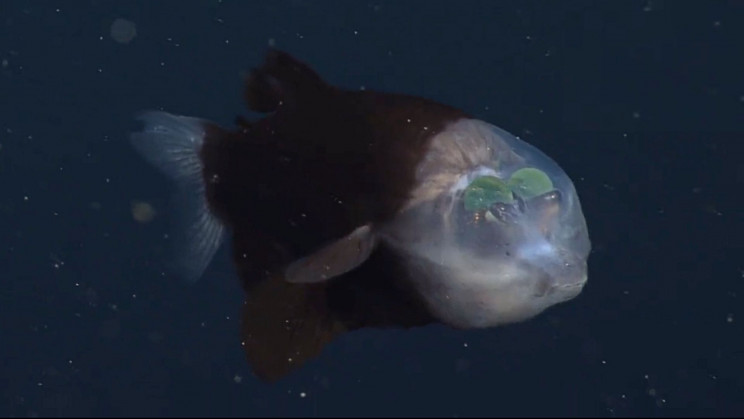Images and videos from the ocean often show dark swaths of water with occasional coral reefs, underwater mountains, alien-like creatures and various types of cephalopods, but videos of whales are rare, especially Moby Dick like sperm whales.
The Ocean Exploration Trust (OET) has been exploring the deep oceans since its founder, Dr. Robert Ballard, discovered the Titanic in 1985. OET runs an international program called E/V Nautilus, carrying out research in geology, biology, maritime history, archaeology, physics, and chemistry. OET works closely with the US National Oceanic and Atmospheric Administration (NOAA), the US Office of Naval Research, the National Geographic Society, as well as a number of major corporations who provide it with funding.
Earlier this week, OET released a video showing an encounter off Louisiana in the Gulf of Mexico between a huge sperm whale and its deep sea remotely operated vehicle (ROV) Hercules. The meeting took place at 1,962 feet (598 meters), and at that depth, the ROV measured 300 atmospheres of pressure. The video was captured by cameras lowered on cables alongside the ROV and operated remotely from the OET’s main ship on the ocean surface.
According to OET, “encounters between sperm whales and ROVs are incredibly rare.” The encounter was described by those who witnessed it as thrilling and beautiful as the giant whale swam around the ROV.
Scientists have noted that young and female sperm whales usually live in groups or pods of 20 while adult males spend most of their time alone searching for food. A typical large sperm whale spends about 10 minutes on the surface of the ocean taking in from 40 to 100 breaths to oxygenate its blood and muscles before diving for up to 25 minutes at depths from 1,000 to 2,600 feet. It takes a whale about 10 minutes to resurface.
References and related content:






